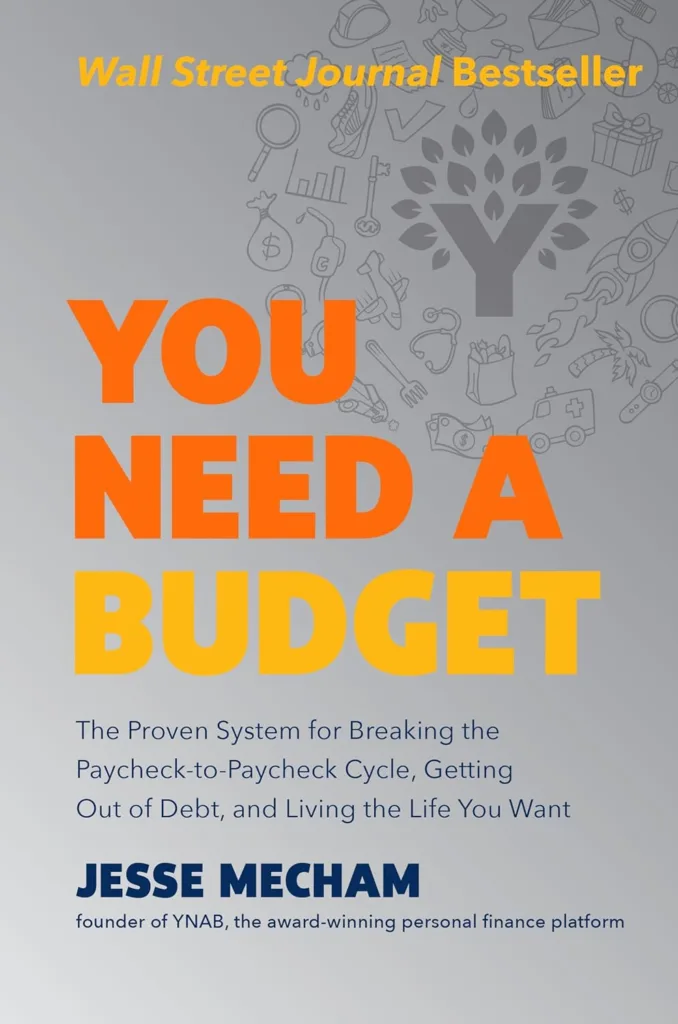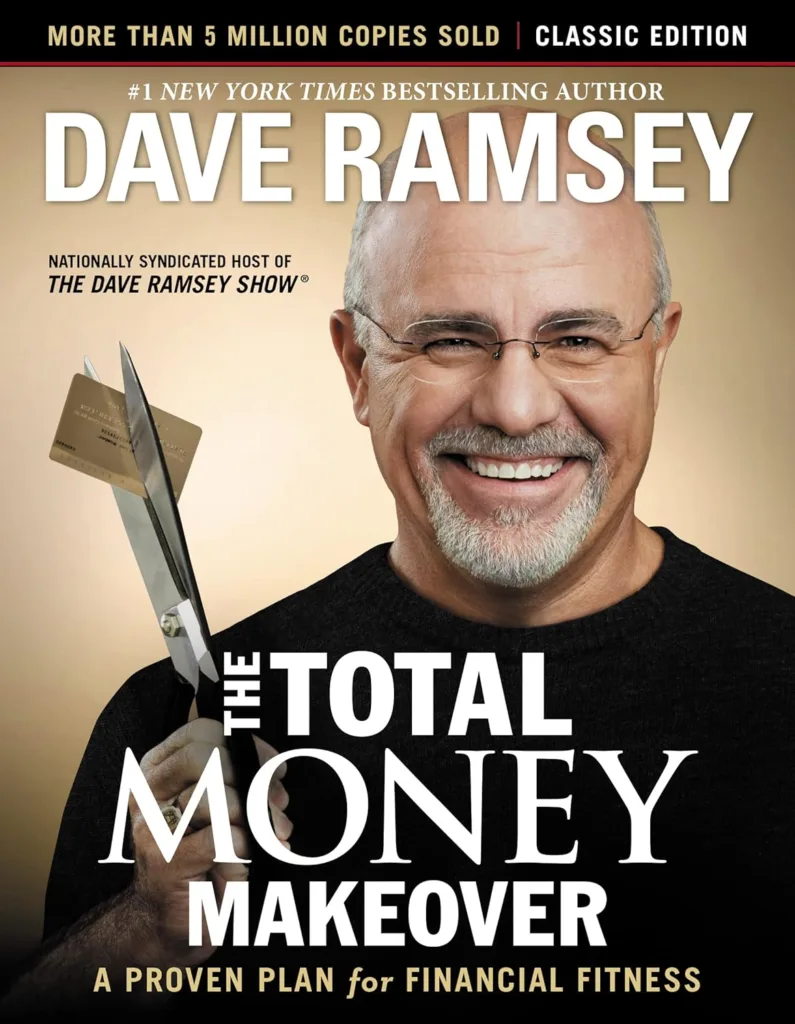A Comprehensive Guide to Eradicating Debt and Cultivating Prosperity in 2024
As the year comes to a close and the festive spirit fills the air, a brand-new calendar awaits.
However, amidst the twinkling lights and holiday cheer, you may find yourself worrying about the $25,000 credit card debt that stands between you and your 2024 travel aspirations.
But fear not, This is your year for a financial reset where you will conquer debt and take control of your wanderlust.
Get ready to pay off your credit card and embark on a journey towards a debt-free future and fulfilling your dreams.
This is more than just a guide – it’s a rallying call to action. We’ll equip you with the essential strategies, tactics, and tools to conquer your debt and reach your travel goals by 2024.
So, grab your virtual sword (a budget spreadsheet, maybe?), fasten your seatbelt, and let’s embark on this journey together!
Understanding Credit Card Debts

- Get 20% Off The Total Money Makeover with this exclusive link: Amazon.com
Credit card debt can seem like an insurmountable debt snowball and challenge, but it’s crucial to understand its nuances to effectively tackle it.
When you use a credit card to make a purchase, you’re essentially borrowing money that will pay interest if you agree to pay it back within a stipulated period.
If you don’t pay this money back in full by the end of your billing cycle, the remaining balance or minimum payment is carried over to the next month. This is when interest starts accruing, and this is where the troubles begin.
The interest rates on credit cards are notoriously high, often in the double digits. Therefore, even a small unpaid balance transfer credit card can lead to significant debt over time if not addressed promptly.
Furthermore, this accumulated debt can detrimentally affect your credit score, making it more challenging to secure loans or credit in the future.
Remember, knowledge is power. An understanding of how credit card debt works is the first step in your journey toward a debt-free future.
- Related Reading:
- Download our free E-book today and start learning how to create wealth for yourself!
- 11 Best Apps That Pay You Real Money in 2023
- Zombie Nation: How Modern Life Is Turning Us into Mindless Masses
Formulating a Debt Payoff Plan

- Get 35% Off You Need a Budget: The Proven System for Breaking the Paycheck-to-Paycheck Cycle with this exclusive link: Amazon.com
To formulate an effective debt payoff payment plan now, you need to start by assessing your current financial situation.
Jot down all your sources of income, monthly expenses, and outstanding debts.
By understanding where your money is coming from and where it’s going, you’ll be in a better position to allocate funds towards debt reduction.
Your plan should include the following steps:
- Establish a Budget:
Create a realistic budget covering essential expenses like food, rent, utilities, and transportation. Ensure that your budget allows for a significant monthly payment towards your credit card debt.
- Prioritize Your Debts:
If you have multiple credit cards with varying interest rates, prioritize paying off the credit card balances due with the highest interest rate first, a strategy known as the ‘avalanche method.’ This approach will save you the most money in the long run.
- Set Clear Milestones:
Setting achievable milestones can make the journey to debt-free life less overwhelming. Break down your payoff goal into smaller, manageable steps. Celebrate each milestone to keep your motivation high.
- Plan for Setbacks:
Life is unpredictable, and financial setbacks are often inevitable. Having an emergency fund can cushion the impact of unexpected expenses and ensure your debt payoff plan stays on track.
By adhering to your debt payoff plan, you will gradually reduce your credit card debt, paving the way to achieve your dream in 2024.
The journey may be tough, but with discipline and dedication, you can turn this financial reset into a reality.
- Related Reading:
- The Ultimate Guide to Financial Freedom in 2024
- How to Protect Your Money Against Inflation
- How to Create a Budget for a Single-Income Household
Additional Tips to Stay on Track
As you start your debt payoff journey, here are a few extra tips to keep in mind:
- Avoid Adding More Debt: It may be tempting to continue using credit cards while paying off existing debts, but this will only prolong the process. Limit your credit card usage and focus on paying off your current balances.
- Consider Debt Consolidation: If you have multiple credit card debts, consolidating them into one loan with a lower interest rate can make your payments more manageable.
- Negotiate with Creditors: Don’t be afraid to negotiate with your creditors for lower interest rates or payment plans that work better for you. Every little bit helps in the journey towards debt freedom.
- Seek Support: Paying off a significant amount of debt can be emotionally taxing. Surround yourself with a supportive network of friends and family who can provide encouragement and keep you accountable.
- Educate Yourself: Stay informed about financial topics and learn from experts to stay motivated and on track with your goals. Try our recommended books throughout the blog post
By implementing these additional tips alongside your debt payoff plan, you’ll be well on your way to achieving financial freedom and dreams.
Choose Your Weapon: Debt Payoff Strategies

Get 20% Off The Total Money Makeover with this exclusive link: Amazon.com
There is no universal solution for debt elimination, but here are some effective debt relief strategies to consider:
- Avalanche Method:
The ‘Avalanche Method’ is a systematic approach to paying off your credit card debt, focusing primarily on the debts with the highest interest rates. Here’s how it works:
List your debts: Begin by listing all of your debts, from the highest interest rate to the lowest. Don’t consider the total amount of debt, just the interest rate.
Make the minimum payments: Ensure you’re making the minimum payments on all your debts to avoid additional fees and negative impacts on your credit score.
Allocate surplus to the highest-interest debt: Any extra money you have remaining should be applied to the debt with the highest interest rate. This not only reduces that debt more quickly but also minimizes the total interest you’ll pay over time.
Repeat the process: Once the debt with the highest interest rate is fully paid off, move on to the debt with the next highest rate. Continue this process until all debts are repaid.
- Snowball Method: Start by prioritizing the repayment of your smallest debts. This not only helps you achieve quick wins but also boosts your motivation to keep going.
- Balance Transfer: If you have a solid credit score, it might be worth considering moving high-interest balances to a credit card with 0% APR. This move can provide you with some much-needed financial flexibility and peace of mind.
- Debt Consolidation Loan: Consolidating multiple debts into a single loan can make your payments simpler and potentially save you money with a lower interest rate. Simplify and save with debt consolidation.
Reducing Expenses and Increasing Income

- Get 50% Off I Will Teach You to Be Rich: No Guilt. No Excuses with this exclusive link: Amazon.com
Reducing your expenses and increasing your income are two effective strategies to high-interest debt and accelerate your debt payoff journey.
Reducing Expenses
Start by categorizing your expenses into ‘needs’ and ‘wants.’ ‘Needs’ include essential items like rent, groceries, and utilities, whereas ‘wants’ include non-essential purchases such as dining out, entertainment, and shopping sprees.
Focus on minimizing your ‘wants’ and finding cheaper alternatives for your ‘needs.’ Here are some methods to lower your spending:
- Budgeting: Allocate specific amounts for different expense categories and stick to them.
- Cutting Discretionary Expenses: Limit dining out, subscriptions, and other non-essential expenses.
- Shopping Smart: Use discounts, and coupons and shop during sales to save money.
- Downsizing: If feasible, consider moving to a smaller home or selling an expensive car.
- Eliminating Unnecessary Subscriptions: Unsubscribe from services you no longer use or need.
Increasing Income
Increasing your income can give you extra funds to put towards your debt payments. Consider these strategies to earn extra money:
- Freelancing or Part-Time Jobs: Use your skills to provide services and earn extra on the side.
- Selling Unused Items: Sell items you no longer need on online platforms like eBay or Facebook Marketplace.
- Investing: If you have money to spare, consider investing in stocks, bonds, or real estate for potential returns.
- Negotiating a Pay Raise: If you’ve been performing well at your job, consider asking for a raise.
- Renting Out Space: If you have an extra room or property, consider renting it out for additional income.
By integrating these strategies into your financial plan, you can create a surplus that will help you pay off your debt faster and inch closer to your goals for 2024.
- Related Reading:
- Download our free E-book today and start learning how to create wealth for yourself!
- 11 Best Apps That Pay You Real Money in 2023
- How to Achieve Financial Freedom as an Immigrant Without Papers in 2023
Establishing Clear Achievable Financial Goals

- Get 50% Off The Psychology of Money with this exclusive link: Amazon.com
Establishing clear, achievable financial goals is critical to your debt payoff journey. These goals serve as your roadmap, guiding you toward financial independence and the lifestyle you envisage in the future. Here are some steps to setting effective financial goals:
- Understand your financial situation: Start by taking an inventory of your finances. Understand your income, expenses, assets, and debts to establish a clear picture of your financial health.
- Identify your short-medium, medium, and long-term goals: Short-term goals might include paying off a small debt or saving for a vacation. Medium-term goals could involve saving for a down payment on a house or paying off larger debts. Long-term goals are typically retirement-related or involve substantial savings.
- Prioritize your goals: Determine which goals are most important to you and prioritize them. This will help guide your budgeting and saving efforts.
- Create a plan: Once you have your goals outlined, develop a plan to achieve them. This might involve creating a budget, reducing expenses, increasing income, or a combination of these strategies.
- Track your progress: Regularly review your financial goals and track your progress. This can help you stay motivated and make necessary adjustments to your plan.
- Automate Your Payments: Set up automated payments to ensure that you never miss a debt repayment.
- Stay Committed: Keep your financial goals at the forefront of your mind. Even when the journey gets tough, remember why you started in the first place.
Remember, your financial goals should be SMART – Specific, Measurable, Achievable, Relevant, and Time-bound. They will serve as your beacon, guiding you through the stormy seas of debt toward the tranquil shores of financial freedom in 2024.
Building Bridges, Not Walls: Seeking Support and Accountability
Embarking on a debt payoff journey is no easy task and doing it alone can make it seem even more daunting. Therefore, seeking support and accountability can be instrumental in your journey to financial freedom.
- Find a Mentor or Financial Advisor: Regular check-ins with a mentor or financial advisor can help keep you on track. They can provide guidance and advice tailored to your specific financial situation and goals.
- Join a Support Group: Whether it’s an online forum or a and local community group, being part of a support group can offer emotional support and practical advice from people going through the same journey.
- Involve Your Friends and Family: Share your goals with your loved ones. They can encourage for support, and for, and help hold you accountable to your financial commitments.
- Use Financial Management Tools: encouraging you to achieve encourage your financial goals.
Seeking support is not a sign of weakness, but a strategic move towards success. You’re building bridges to a debt-free life, not walls around your current situation.
Celebrating Victories, Big and Small

As you navigate your debt-free journey, it’s important to take moments to celebrate your victories, both big and small. Every milestone achieved, no matter how minor it may seem, is a step closer to your financial freedom and deserves recognition. Here are a few ways you can celebrate:
- Share your achievements: Publicly share your progress with friends, family, or your support group. Not only will this cement your achievements, but it also encourages others on a similar journey.
- Treat yourself: Reward yourself with something you enjoy – it could be a meal from your favorite restaurant, a movie night, or a day trip to a local attraction. Remember, the idea is to celebrate without derailing your financial goals.
- Reflect on your journey: Reflecting on the progress you’ve made can serve as a reminder of your resilience, determination, and ability to overcome financial challenges.
- Pay it forward: Use your experience and knowledge to help someone else on their debt-free journey. There’s no greater joy than knowing your experience is benefiting others.
Remember, every step forward, no matter how small, is a victory. Celebrating these victories instills confidence in your ability to reach your financial goals and motivates you to continue striving toward a debt-free 2024.
Adapting and Evolving: When Life Throws Curveballs
Life doesn’t always go according to plan. Unexpected events, such as job loss, and medical emergencies, can throw a wrench in your carefully laid financial plans.
The key to navigating these curveballs is adaptability and flexibility. Here are some strategies to help you adapt and evolve when life throws curveballs:
- Emergency fund: An emergency fund serves as a financial safety net. Aim to have 3-6 months’ worth of living expenses saved up to cushion against unexpected financial shocks.
- Review and Adjust Your Financial Goals: When faced with a significant life event, it might be necessary to review and adjust your financial goals. Remember, it’s okay to take a step back and reassess your situation.
- Insurance: Insurance can provide financial protection against unforeseen events. Ensure you have adequate insurance coverage, including health, life, car, and property insurance.
- Diversify Your Income Streams: Multiple income streams can provide financial stability in uncertain times. Consider developing a side hustle or passive income stream.
- Financial Literacy: Increase your financial literacy. Knowledge is power, especially when it comes to managing your money and dealing with financial setbacks.
Final Thoughts
Financial freedom is not a destination, but a journey. It requires patience, resilience, and consistent efforts.
While the road may seem daunting at first, armed with the right mindset and tools, you can navigate any financial challenge that comes your way.
Celebrate your small victories, and never lose sight of your ultimate goal – a debt-free life. May 2024 be the year you conquer your financial mountains and realize your dreams. Let the journey towards financial autonomy begin!
- Related Reading:
- Download our free E-book today and start learning how to create wealth for yourself!
- 11 Best Apps That Pay You Real Money in 2023
- How to Overcome Financial Procrastination














